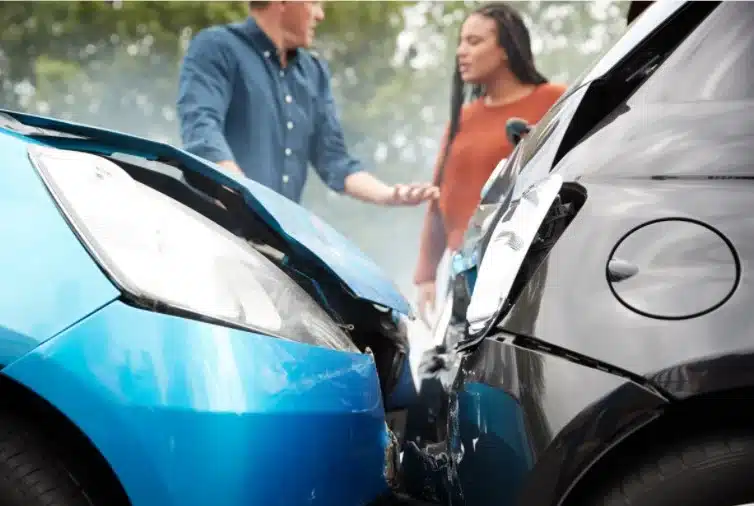If you are working as an employee or performing a work-related task when an accident occurs, your employer may be liable for your injuries and the resulting damages. Employers have been found liable for accidents that injured their employees while working on the clock or working for business purposes. In most states, it is required that employers provide employees with the proper equipment and safety measures necessary to do their job safely. They also have a duty to warn the employee of dangers that could result in a potential injury or death.
Car accidents that occur when one or more party is “on the job” can be particularly difficult to navigate due to the legal concept of respondeat superior. Companies will also hire their own attorneys to protect their interests and assets. It is important to consult with an experienced personal injury attorney to understand how to proceed with your case.
Ali Awad, the “CEO Lawyer,” understands the most effective approach to seeking the compensation you need during these challenging times in your life. Filing an injury claim is not something any of us want to go through, but when it happens, you want someone savvy and focused on the numbers on your side. Call the CEO Lawyer Personal Injury Law Firm at (470) 323-8779 for your no-obligation consultation.
Respondeat Superior
Under most circumstances, Georgia recognizes the legal doctrine of respondeat superior. Under this doctrine, an employer can be held liable for negligent acts committed by its employees while working within the “course and scope” of their employment.
In Georgia, personal injury victims can use the doctrine of respondeat superior to seek compensation for injuries and damages from the employer of the at-fault party if that person was working on the job during the time of the accident. As most personal injury attorneys will tell you, the employer and the employer’s insurance company may be a better source of potential compensation than the employee alone.
However, in 2020, the Georgia Supreme Court ruled that the respondeat superior law was at odds with the Georgia apportionment statute, which holds that liable parties should each be responsible for a portion of damages dependent upon the percentage of fault. This means that both the employer and employee may both be held liable for a portion of the damages in your personal injury case.
Proving Employer’s Liability
If you are suing your employer or the employer of the at-fault party in your car accident, you must be able to prove that the other driver was acting in the “course and scope” of their employment when the accident occurred.
A personal injury attorney will conduct an investigation into the accident, review statements from all parties, and police reports in order to answer the following questions:
- What was the employee was doing right before and during the time the accident took place. For example, were they driving safely, or were they sending a text message or adjusting the radio?
- Where was the employee was headed and where they had just left before the accident took place?
- Was the employee driving to or from work when the accident happened?
- Was the employee in a company-owned vehicle?
However, the answers to these questions are not always straightforward. Suppose that the negligent driver was using their phone right before the accident took place, but they were conducting work-related business. Or, the negligent driver was on their way home from work when the accident happened, but they were tasked with a “special mission” or asked to do something that would benefit the employer while on their way home.
Negligent Hiring Practices
Negligent hiring refers to when an employer hires (or retains) someone that they knew or should have reasonably known, regularly engages in behavior that could cause injury to another person.
In Georgia, the plaintiff must prove that the employer did not exercise reasonable care in hiring the worker or willfully ignored signs that the employee acted in unsafe and unprofessional ways. Additionally, the plaintiff, or their attorney, must prove that the negligent employee had dangerous tendencies. For example, did this employee who was hired to drive a delivery van have several tickets for speeding or distracted driving? Had they been arrested for driving under the influence?
Finally, the plaintiff must prove that the employer put the employee in a position to cause harm or injure another person while the scope of their employment.
Ali Awad, the CEO Lawyer, Personal Injury Attorney
Navigating the law in personal injury cases that involve a person working on the job can be especially complicated. It is vital that you contact an experienced injury and accident attorney to help you understand the facts of your case and which parties should be held liable for injuries sustained in a car accident.
Ali Awad is the founder and managing attorney of the CEO Lawyer Personal Injury Law Firm. Ali Awad is experienced in maximizing settlement offers for his clients and dealing with both big business and insurance companies. Our Atlanta car accident attorneys don’t get paid unless you do, so call now at (470) 323-8779 for a no-obligation consultation of your case.




